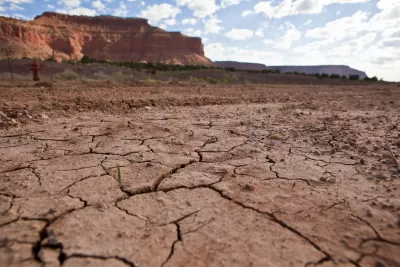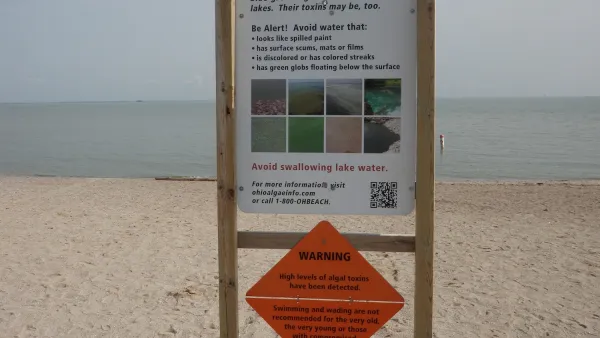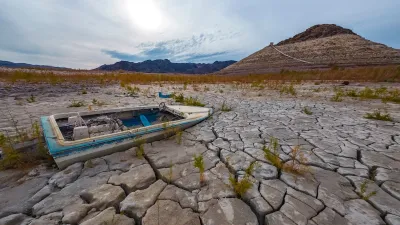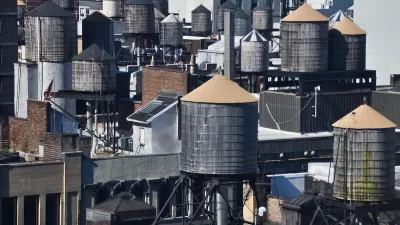As some areas of the country seek out new sources of water, other areas are trying to protect what they have.

Lynn Broaddus and Robert Puentes report in The Avenue on the new world of water—where some drought stricken areas are striking deals to acquire other people's water and other areas are circling the wagons to preserve what they have. Waukesha, Wisconsin is seeking to pump water from Lake Michigan to its residents through a $200 million, 20-mile pipeline that requires approval (as part of a seven year-old agreement) from eight states bordering the Great Lakes. "The idea behind the Great Lakes-St. Lawrence River Basin Water Resources Compact is to prevent thirsty states in the West from tapping into the lakes."
The report goes on to questions the necessity of such a large infrastructure investment when trends show a general decline in water usage around the country and new technologies making water reuse and recovery easier. "For example, San Francisco now requires new buildings over a certain size to treat and re-use wastewater on-site, a move that will catalyze innovation and increase the availability of these technologies in other parts of the country. This scaling down of water technology gives customers new affordable options and providers beyond water utilities, not unlike what rooftop solar is doing to the energy utility business."
FULL STORY: Wisconsin water woes part of larger story

Planetizen Federal Action Tracker
A weekly monitor of how Trump’s orders and actions are impacting planners and planning in America.

Congressman Proposes Bill to Rename DC Metro “Trump Train”
The Make Autorail Great Again Act would withhold federal funding to the system until the Washington Metropolitan Area Transit Authority (WMATA), rebrands as the Washington Metropolitan Authority for Greater Access (WMAGA).

The Simple Legislative Tool Transforming Vacant Downtowns
In California, Michigan and Georgia, an easy win is bringing dollars — and delight — back to city centers.

The States Losing Rural Delivery Rooms at an Alarming Pace
In some states, as few as 9% of rural hospitals still deliver babies. As a result, rising pre-term births, no adequate pre-term care and "harrowing" close calls are a growing reality.

The Small South Asian Republic Going all in on EVs
Thanks to one simple policy change less than five years ago, 65% of new cars in this Himalayan country are now electric.

DC Backpedals on Bike Lane Protection, Swaps Barriers for Paint
Citing aesthetic concerns, the city is removing the concrete barriers and flexposts that once separated Arizona Avenue cyclists from motor vehicles.
Urban Design for Planners 1: Software Tools
This six-course series explores essential urban design concepts using open source software and equips planners with the tools they need to participate fully in the urban design process.
Planning for Universal Design
Learn the tools for implementing Universal Design in planning regulations.
Smith Gee Studio
City of Charlotte
City of Camden Redevelopment Agency
City of Astoria
Transportation Research & Education Center (TREC) at Portland State University
US High Speed Rail Association
City of Camden Redevelopment Agency
Municipality of Princeton (NJ)





























